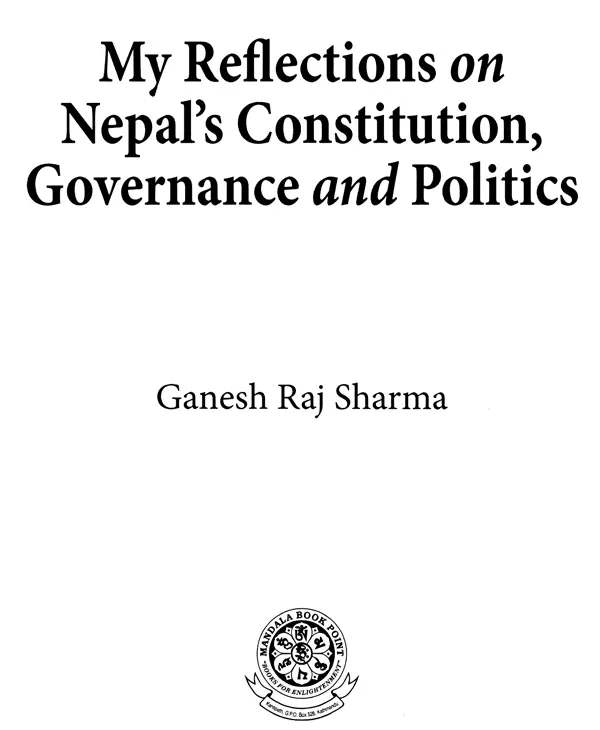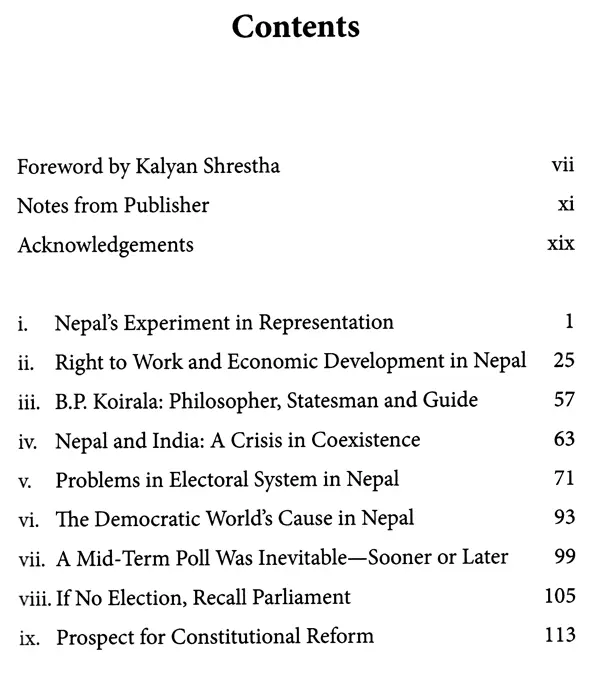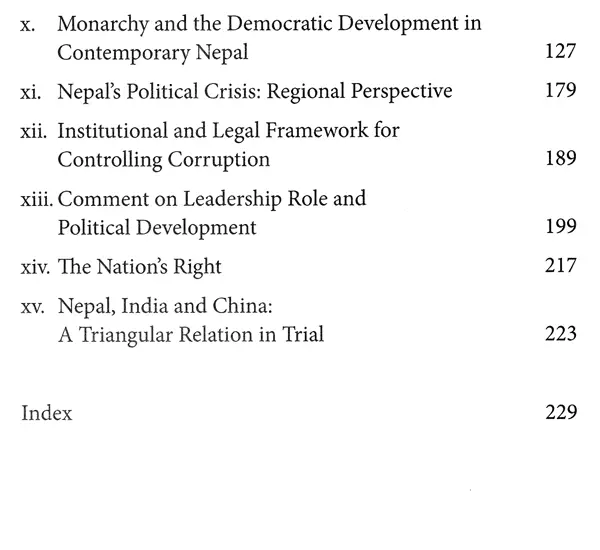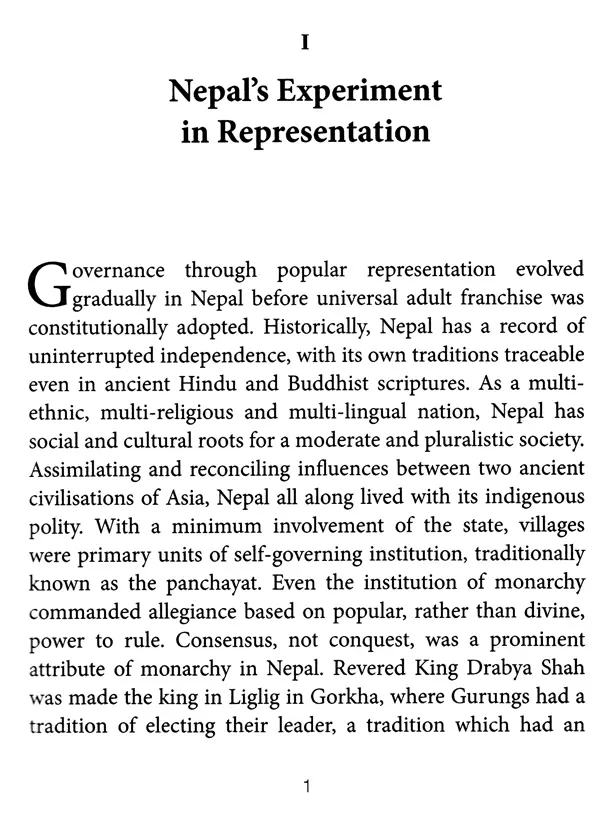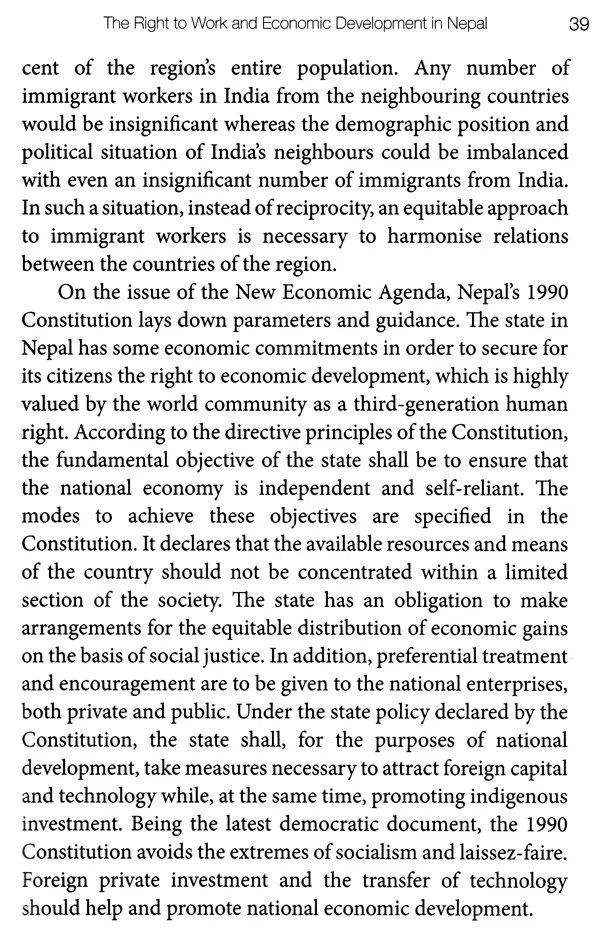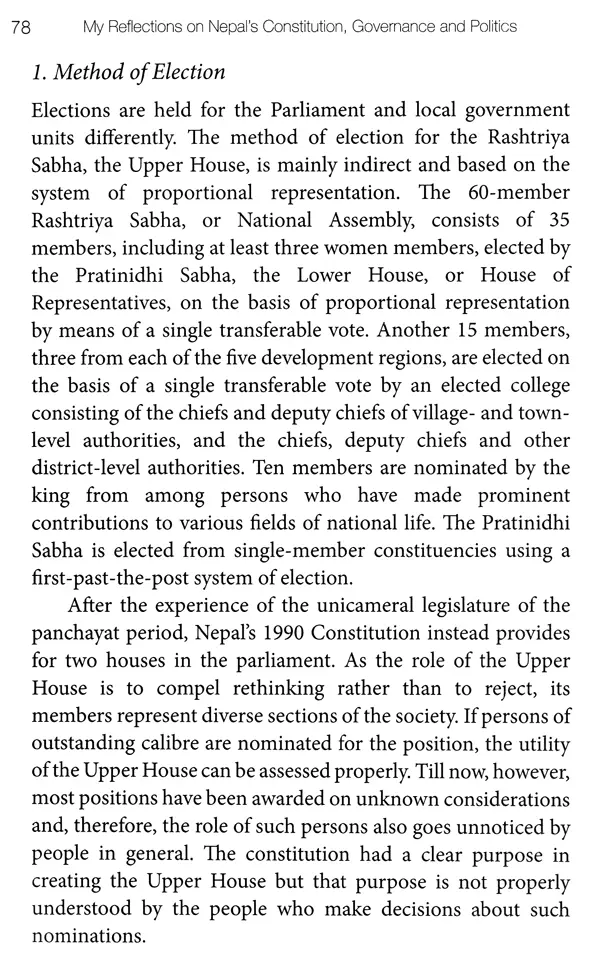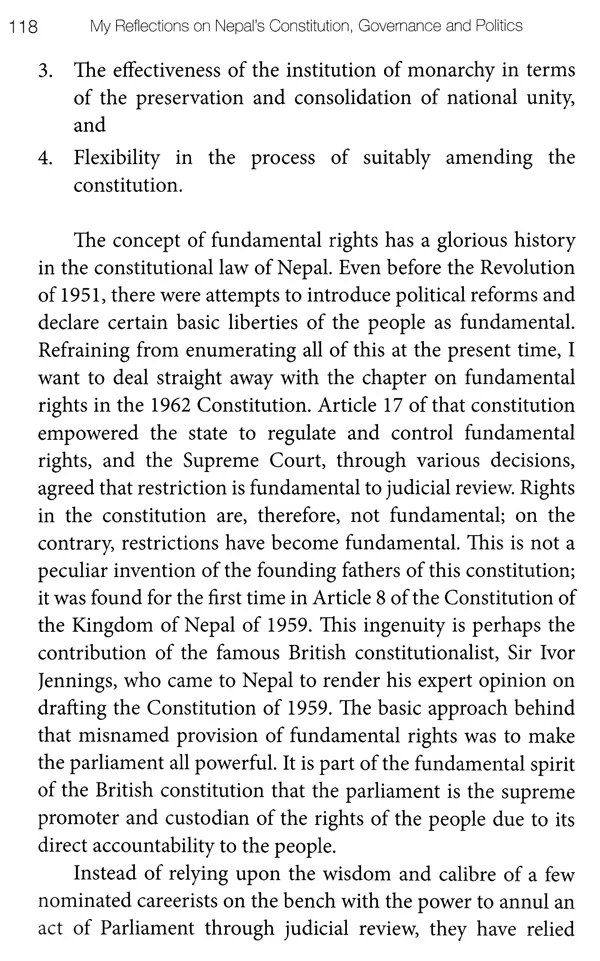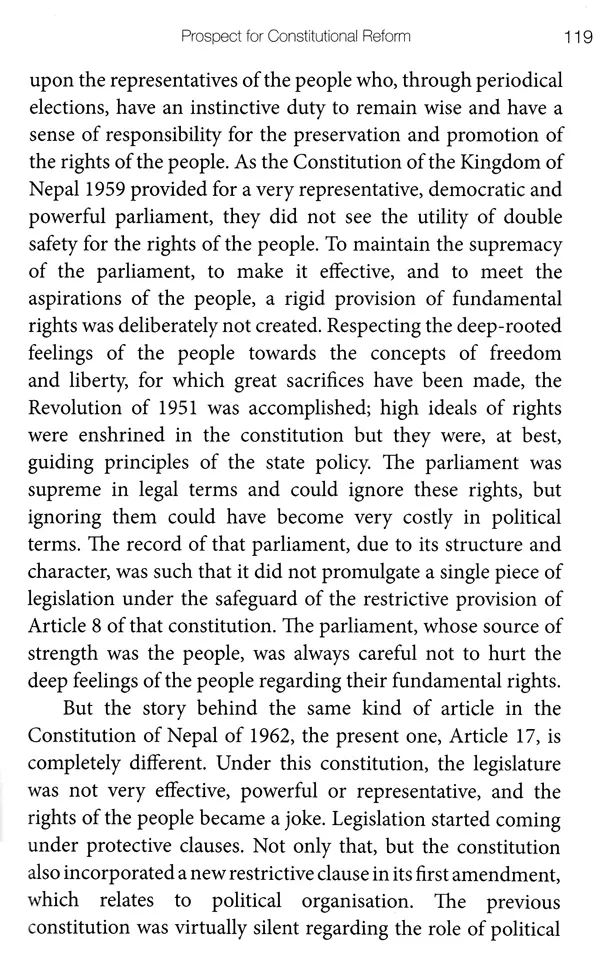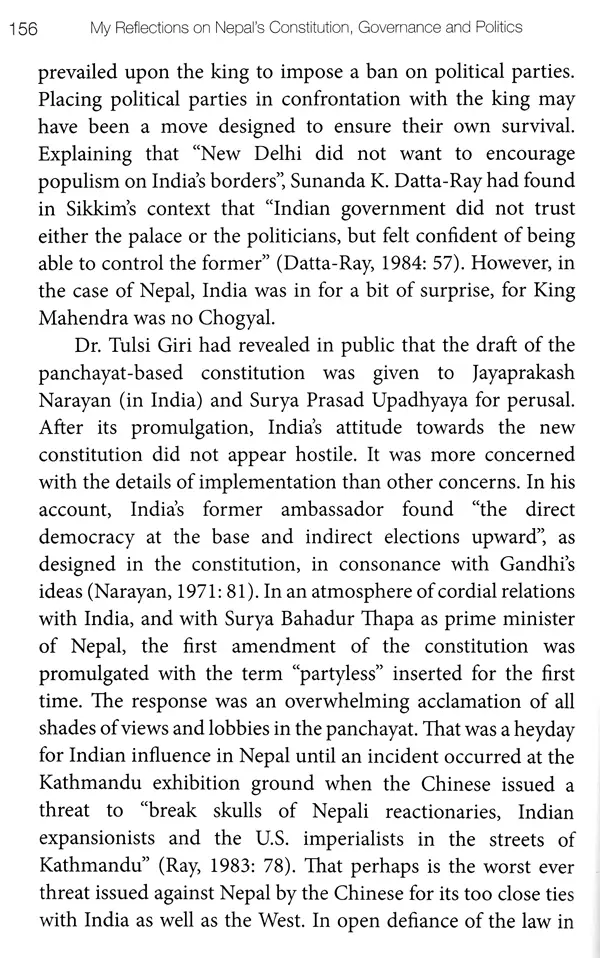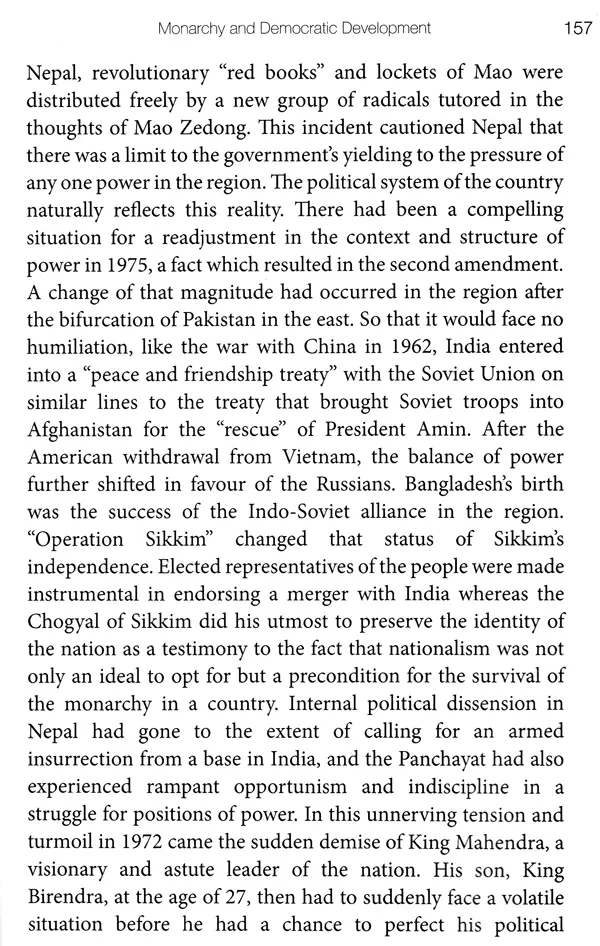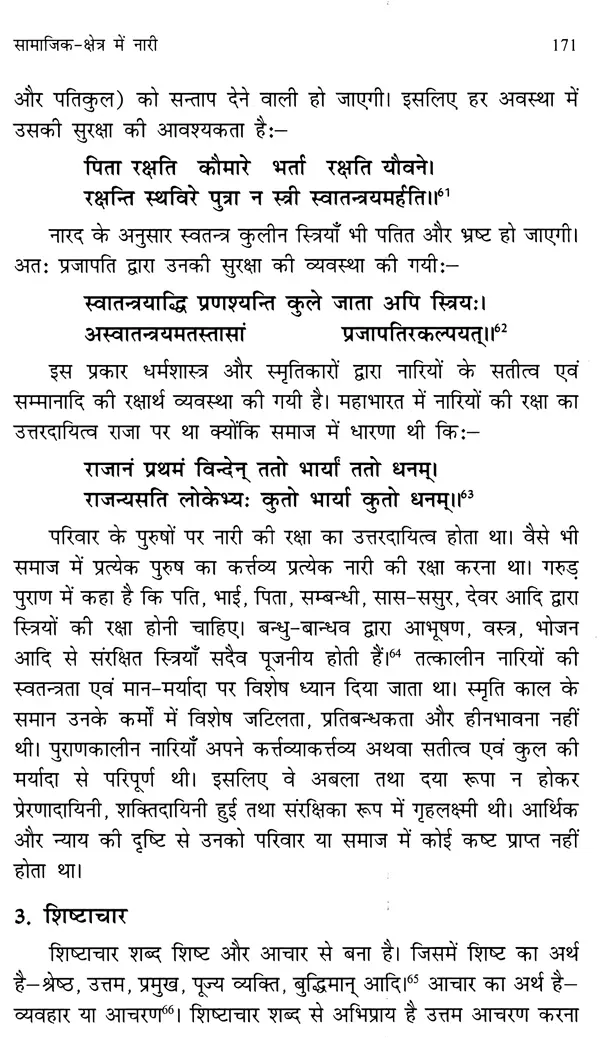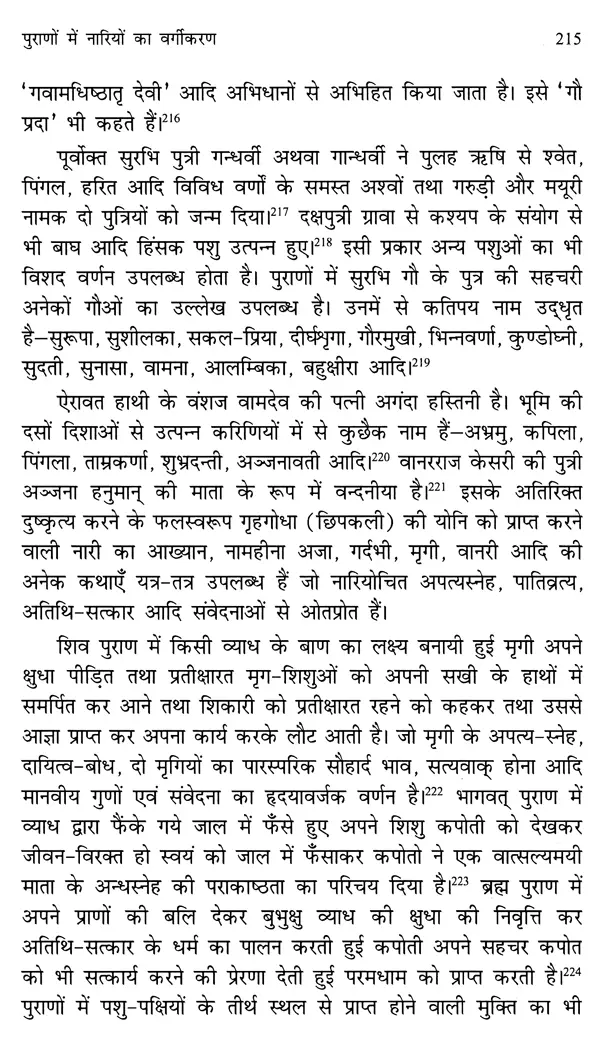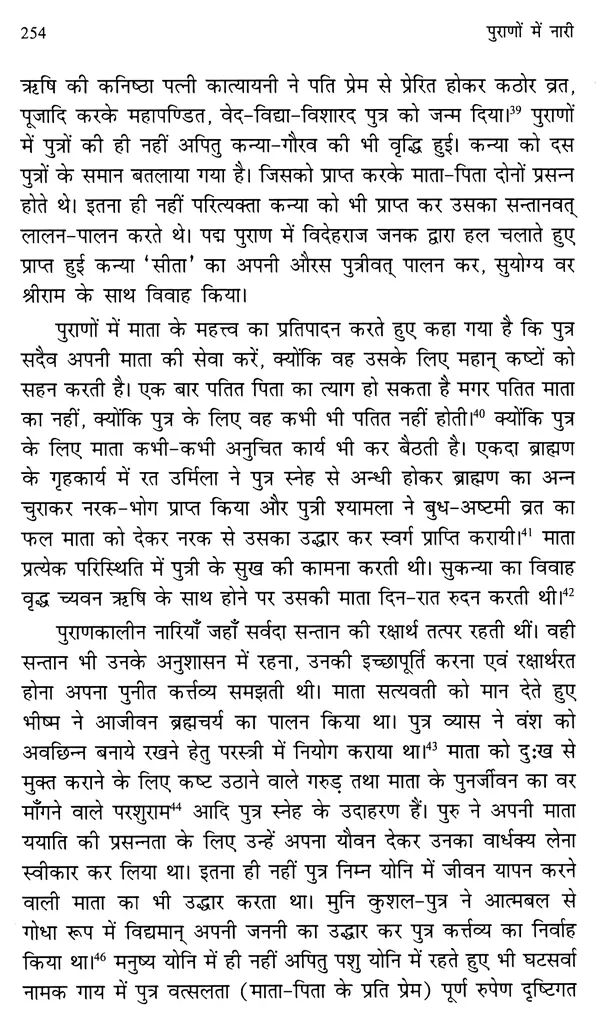
My Reflections on Nepal''s Constitution, Governance and Politics
Book Specification
| Item Code: | UAT757 |
| Author: | Ganesh Raj Sharma |
| Publisher: | Mandala Book Point, Nepal |
| Language: | English |
| Edition: | 2022 |
| ISBN: | 9789993342571 |
| Pages: | 254 |
| Cover: | PAPERBACK |
| Other Details | 8.50 X 5.50 inch |
| Weight | 320 gm |
Book Description
Ganesh Raj Sharma's anthology on Nepali political and legal affairs spans decades, covering topics ranging from the role of the monarchy to the responsibilities of parliament in the nation's democratic development. The collection provides insight into Nepal's experimentation with representative government and incisive observations on the influence of geopolitics on the system's trajectory.
Born in Rampur, Nepal, on May 8, 1936, Sharma received his M.A. in Economics from Banaras Hindu University in 1961 and his Bachelor of Laws from the same in 1963. He is best known for defending BP Koirala, who was under house arrest after returning to Nepal in December 1977 from a self-exile in India. Koirala was cleared of all charges of sedition and treason in March 1978.
Sharma later compiled BP's Jail Journal and Atmabritanta (Autobiography) as well as as MP Koirala's A Role in a Revolution His long career has had lasting impact on the country's sovereign independence and democratic evolution, and his work on landmark cases interpreting Nepal's constitution has significantly contributed to the nation's constitutional jurisprudence.
He passed away on October 27, 2015, at the age of 79. This book is a compilation of some of his writings and was published posthumously.
I am delighted to write the foreword to this collection of essays and interviews entitled "My Reflections on Nepal's Constitution, Governance and Politics" by the late Ganesh Raj Sharma.
I first met Ganeshji about fifty years ago. He was a lawyer of extraordinary caliber, vision, and integrity.
When Nepal embraced democracy in 1950, there was a crying need for establishing an independent judiciary, rule of law, and constitutionalism, and for defining people's rights under the constitution. Doing so required modernizing the country's legal and judicial system. A handful of talented judges and lawyers took up this challenge. Ganeshji was one of them. They commenced the work of transforming the praxis and culture of the judicial system in Nepal and that transformation became the country's foundation of a system of constitutional recourse, remedy, and writ jurisprudence. These talented young men led by example and helped orient the next generation of colleagues.
Ganeshji's unflinching faith in the rule of law in a democracy was exemplary. He came to the limelight through court cases in which he defended many political prisoners who had suffered at the hands of an authoritarian government that was established in 1960 by the then King by dismissing Nepal's first democratically elected parliament and the prime minister. Amongst the political prisoners he defended was the late B.P. Koirala.
Ganeshji played an active role in the Bar Association in the 1970s.
The promulgation of the 1990 Constitution established a constitutional monarchy, multiparty democracy, and an independent judiciary. Ganeshji played a pivotal role in many landmark constitutional cases during his career. These included the dissolution of the parliament (four times during his career); a water-sharing treaty with India; the citizenship Bill; employment of foreign labourers and many others. He was an early champion of public-interest jurisprudence. His arguments were based on rigourous research and were of high intellectual caliber. His presentations were clear, powerful, and convincing. He was a highly sought after amicus.
This collection of essays and interviews portrays the essence of Ganeshji, as one of Nepal's foremost independent thinkers, a patriot who fought for sustainable peace, democracy, and the prosperity of the nation. The core issues he advocated were permanent transit rights, non-reciprocity in bilateral ties, especially with India, and fair trade deals and fair treatment in economic matters.
**Contents and Sample Pages**
